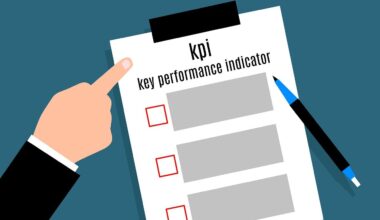How Counselors Tailor Bankruptcy Education to Different Financial Situations
Bankruptcy counseling plays a pivotal role in assisting individuals who find themselves in dire financial straits. Counselors offer tailored education based on each client’s distinct financial landscape. The process involves assessing the individual’s debt, income, and financial goals. Through this assessment, counselors can curate specific educational resources focusing on improving financial literacy. Their primary mission is to equip clients with the tools necessary to navigate bankruptcy options effectively. Financial difficulties often stem from various sources such as medical bills, job loss, or divorce. Recognizing these causes is fundamental in customizing the educational strategies employed. Counselors utilize information from sessions to identify common challenges and address them through personalized advice. Each client’s situation necessitates a unique approach. Counselors strive to foster an environment of understanding while offering practical solutions. They may suggest budgeting techniques or recommend credit counseling programs. Therefore, it is evident that bankruptcy education is not one-size-fits-all. Instead, it reflects the individual’s circumstances, promoting empowerment and a pathway to recovery, paving the way for future financial stability.
Tailored education in bankruptcy counseling emphasizes a holistic understanding of financial situations. Counselors analyze clients’ expenses, income, and other financial commitments. This analysis often reveals underlying patterns, helping clients recognize impulsive spending habits. For instance, an individual struggling with inadequate income may benefit significantly from a tailored budget plan focused on essentials. Counselors will often introduce clients to spending control strategies, such as the 50/30/20 rule, which allocates 50% of income to needs, 30% to wants, and 20% to savings. By incorporating these guidelines, counselors facilitate a comprehensive learning experience. They also encourage clients to set realistic financial goals, which may necessitate reducing their debt load. This framing is crucial because it fosters client ownership of their financial journey. Establishing a support structure is essential for long-term financial education. Counselors may also provide follow-up sessions and additional resources. By implementing incremental education, clients can continuously make informed decisions about their finances. As such, this ongoing process ensures that clients are not just prepared for bankruptcy, but also for sustainable financial management post-bankruptcy.
The Importance of Practical Financial Skills
In bankruptcy counseling, practical financial skills are crucial for effective education. Counselors focus on teaching essential skills like budgeting, saving, and debt management. Practical workshops enable clients to practice these skills hands-on, enhancing their learning. For example, budgeting workshops might involve clients creating real-life budgets based on their income and expenses. This interactive approach fosters engagement, making the learning process enjoyable. Counselors can provide templates and tools like expense tracking apps to facilitate ongoing practice. Beyond budgeting, clients learn how to negotiate with creditors, an essential skill in resolving debts. Counselors often simulate negotiation scenarios, equipping clients with confidence and practical speaking skills. Another critical area counselors address is credit rebuilding post-bankruptcy. Many clients fear their credit score will permanently suffer. However, counselors highlight that rebuilding credit is achievable with the right strategies. They may guide clients through applying for secured credit cards while emphasizing timely payment. Consequently, this comprehensive focus equips clients not only to navigate bankruptcy, but also to emerge from it with enhanced financial acumen. Thus, they gain skills that last a lifetime, aiding in future financial decisions.
Additionally, bankruptcy counselors play an essential role in emphasizing the psychological aspects of financial distress. Financial challenges often lead to stress, anxiety, and frustration among individuals. Counselors understand that emotional support is integral to the educational process. They create a safe environment where clients feel comfortable discussing their financial woes. This emotional connection fosters trust and openness, vital for effective counseling. Counselors actively listen, validate clients’ feelings, and provide reassuring guidance. Also, they equip clients with stress-reduction techniques to manage anxiety associated with financial instability. Practical exercises such as mindfulness and relaxation techniques can be beneficial. Recognizing that feelings of shame and guilt may accompany financial struggles is critical. Counselors work to normalize these emotions, helping clients understand they are not alone. By addressing emotional well-being alongside financial education, counselors create a balanced approach. This holistic method inspires clients towards a positive mindset necessary for overcoming financial obstacles. Ultimately, integrating emotional support within bankruptcy education paves the way for lasting changes in clients’ lives. They emerge equipped not just with knowledge but confidence and resilience.
Community Resources and Support Networks
This approach also leads to the exploration of community resources available to clients. Counselors often guide individuals towards local assistance programs tailored to financial challenges. These programs may provide food assistance, housing support, and healthcare resources, relieving immediate burdens. By leveraging community support, clients can reduce their financial strain while participating in bankruptcy education. Counselors also encourage networking among clients, promoting peer support. Shared experiences create a sense of community, enhancing the learning experience. Discussions within groups can provide valuable insights, allowing participants to learn from each other’s successes and failures. Counselors may organize group sessions that focus on various topics, such as understanding financial statements, managing debt, or maintaining an emergency fund. These collaborative environments foster a sense of belonging. Furthermore, connecting clients with local non-profits and educational institutions enhances their learning journey. Workshops held in these community spaces often incorporate expert speakers, providing clients with additional perspectives on financial literacy. Ultimately, integrating community resources creates a comprehensive support network, empowering clients throughout their bankruptcy journey into recovery and stability.
Another important aspect of bankruptcy counseling is financial goal-setting. Counselors guide clients to formulate long-term and short-term goals specific to their financial recovery. Setting these goals provides clients with a roadmap to follow post-bankruptcy. Short-term goals may include paying bills on time or building a small emergency fund. On the other hand, long-term goals could involve saving for a home purchase or retirement. Counselors utilize SMART criteria—specific, measurable, achievable, relevant, and time-bound—when assisting clients in defining their goals. This structured approach ensures that goals are realistically attainable. Regular check-ins allow counselors and clients to assess progress, adjusting goals as necessary based on changing circumstances. Celebrating small victories is vital, as it keeps clients motivated. Offering encouragement can play a significant role in sustaining a positive mindset during the recovery process. Counselors often emphasize the importance of adaptability in clients’ financial journeys. Teaching clients to pivot and modify goals as they progress supports resilience. Thus, creating a culture of empowerment helps clients regain confidence and control over their financial future.
Conclusion: Fostering Financial Empowerment Through Counseling
In conclusion, bankruptcy counseling emphasizes tailored education for diverse financial situations. Counselors employ various strategies to offer personalized learning experiences, fostering financial empowerment. The integration of practical financial skills, emotional support, and community resources enhances the educational approach significantly. Clients engage in holistic learning, equipping themselves with essential skills for effective financial management. The focus on goal-setting further guides clients through their recovery journey. As individuals navigate the complex world of bankruptcy, counselors become invaluable allies, instilling confidence and resilience in their clients. By acknowledging the unique narratives of each client’s financial journey, customized education emerges as a powerful tool. This robust framework not only prepares individuals for bankruptcy but also supports sustainable financial health moving forward. By equipping clients with the knowledge and resources needed, bankruptcy counselors ensure that individuals emerge from financial turmoil with newfound strength and understanding. With continued education and support, clients can achieve stable financial futures and cultivate lifelong skills necessary for managing finances, ultimately breaking the cycle of debt. Empowered individuals inspire others, creating communities resilient in the face of financial challenges.
Image of Bankruptcy Counseling






